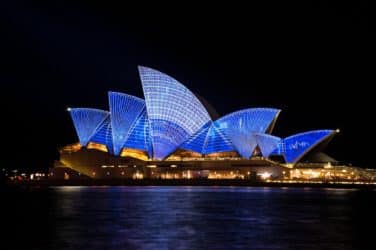
Rob Boardman, chief executive, Europe, Middle East and Africa at equities broker ITG said it is logical for exchanges to merge to cut costs but the industry needs to be structured for customers as well as shareholders.
Deutsche Börse and the London Stock Exchange Group announced today that they have reached agreement on the terms of a recommended all-share merger of equals.
Boardman said in an email: “It is logical for big players to merge to pursue costs synergies, but there are wider competition questions at play here. What does this mean for the index business and who has monopoly pricing power over the closing auction? What about consolidation of platforms and will the Deutsche Börse matching engine move to London?”
Deutsche Börse and London Stock Exchange Group said in their presentation today that the two exchanges had more than €450bn ($498bn) exchange-traded fund assets benchmarked by FTSE and Russell, the index operators owned by LSEG, and Stoxx, Deutsche Börse’s index business.
Boardman added that all competition authorities, not just the European Commission, need to scrutinise the finer details of the deal for the end investor. “When all is said and done, the industry needs to be structured for customers, not just shareholders,” he added.
The presentation said the merger will create the largest exchange group by total income with a diversified revenue mix by product and geography. The combined group had revenues of €4.7bn last year, ahead of ICE, the US exchange operator, in second place with €4.2bn. In 2015 the combined group traded the second highest global volume of exchange-traded derivatives, behind CME, and dominated European equity trading. The presentation said the merged company would have traded €5,245bn of European equities last year, with Bats Europe in second place at €3,771bn.
Deutsche Börse and London Stock Exchange Group expect the deal to be accretive to adjusted cash earnings for both sets of shareholders in the first year and to achieve cost synergies of €450m per annum in the third year after the transaction closes, half from technology enabled efficiencies.
Professor John Colley at Warwick Business School said in a statement that the savings seem rather meagre. “Europe needs a strong champion to compete against the US exchanges and Hong Kong. However, competition authorities remain to be convinced of this argument,” Colley added.
He added that filling the top jobs with a balance of directors from both businesses rarely works and leads to a confused structure and a failure to drive cost savings opportunities arising from the merger. The combined group will maintain headquarters in both London and Frankfurt while the LSEG will maintain a one-tier-board system and Deutsche Börse will maintain a two-tier-board system subject. The initial composition of the merged company will include Donald Brydon from the LSE as chairman and Deutsche Börse’s Carsten Kengeter as chief executive.
Colley said the most likely intervention will come from ICE, led by Jeffrey Sprecher. “The current approach of the LSE and Deutsche Börse may not be aggressive enough to see off Sprecher’s unwanted attention,” he added.
Sprecher said today at the FIA’s International Futures Industry Conference that ICE had access to capital as the LSE merger was announced.
Brad Bailey, research director in the securities and investments practice at consultancy Celent, said in a blog earlier this month that the current regulatory and trading environment means there is tremendous operational scale in very large exchanges. In the merger presentation Deutsche Börse and London Stock Exchange Group said the combined group would operate in more than 30 countries and have over 70 strategic partnerships around the world.
“The technology infrastructure and maintenance cost is high, and global regulation, generally favors a migration to exchange trading and central clearing. And, give the turmoil that blockchain might cause in the exchange and clearing landscape, it will require high levels of R&D budget,” Bailey added.
In addition the progress towards multi-asset trading also favours large global exchange groups and the merged group would cover trading across all asset classes.
“As we have seen the desire for more and more insight, analytics, transaction cost analysis, and best-execution in equities, we have seen the same call, in foreign exchange, and now the clarion is sounding for fixed income,” said Bailey. “Exchanges with the breadth of product, depth of experience, and vision of a multi-asset future are best positioned to compete with the best product mix, clearing choices, and regulatory insight for their customers.”
In the post-trade businesses, the merged company would have aggregate margin pools of approximately €150bn.
The presentation said: “The combined group will meet non-discriminatory open access provisions, across all relevant businesses, in forthcoming European regulation (MiFID II / MiFIR).”
The exchanges added that a portfolio margining service between listed and OTC rates derivative clearing markets in the combined company would offer significant customer benefits through margin relief and cost of capital savings.
Derivates trading and clearing is the largest business and contributed the majority, 37%, of revenues to the combined group last year, followed by information services and technology at 28%. The cash market contributed just 14%, the smallest portion of combined revenues.
Non-transactional revenues formed more than half, 54%, of combined group earnings last year which reduces revenue volatility said the presentation.
Featured image by Abundzu/Dollar Photo Club




